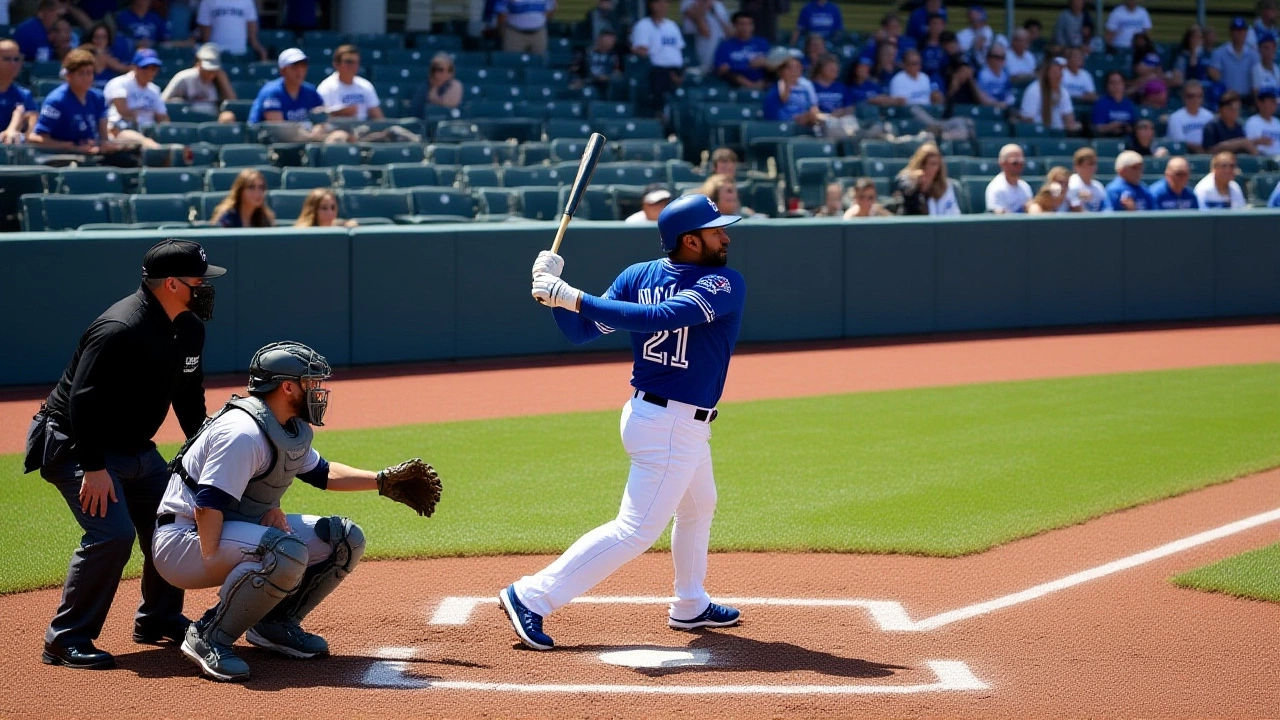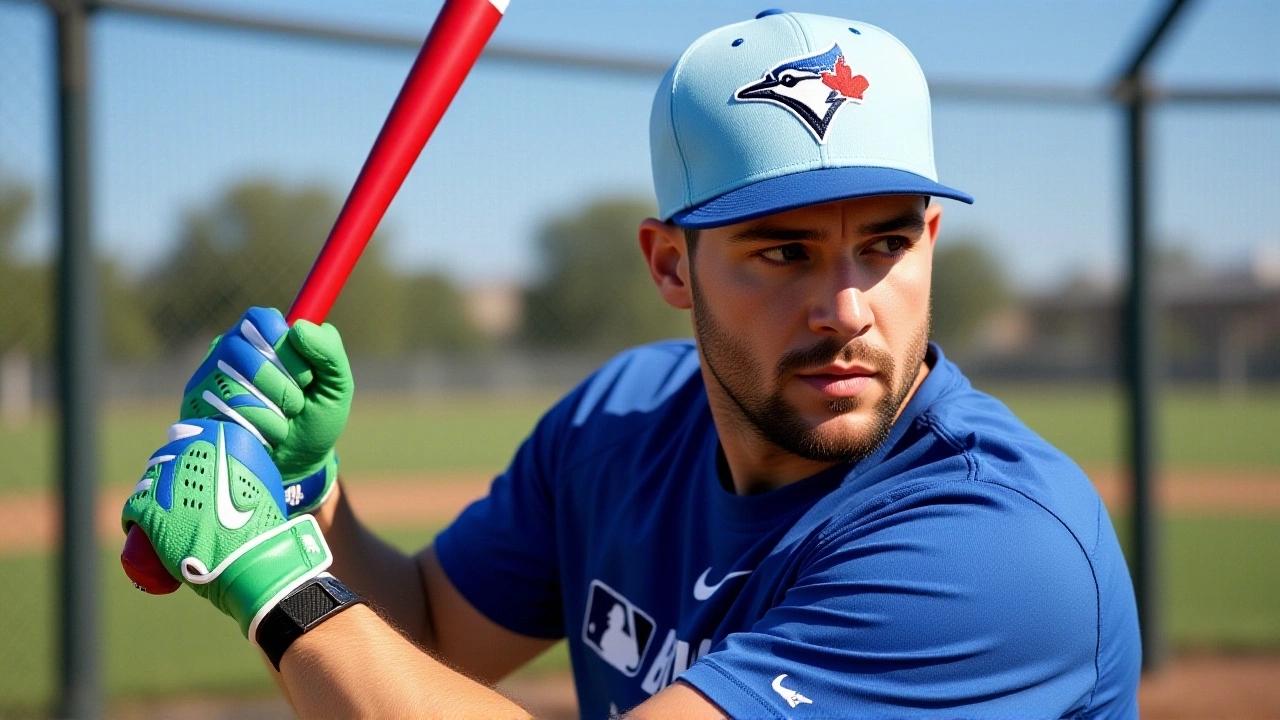When George Springer, outfielder for the Toronto Blue Jays, stormed off the field at Rogers Centre on Sept. 23, 2025, fans knew something bigger was brewing than a routine foul ball. The leadoff hitter’s fury erupted after third‑base umpire Ramon De Jesus ruled a borderline hit foul, a decision replay evidence suggested should have been fair. The incident instantly became a flashpoint in a four‑game sprint to the American League East crown.
Background to the Late‑Season Race
The Blue Jays entered the weekend with a magic number of four, neck‑and‑neck with the New York Yankees. With only 162 games on the schedule, every decision mattered. A win on Monday would have nudged Toronto ahead, but the Red Sox, playing at home, were determined to keep the pressure on. Meanwhile, the Yankees had just put together a two‑game sweep of the Chicago White Sox, tying the AL East standings at 88‑66.
Toronto’s recent surge was built on a 10‑game winning streak that began in early September. The team’s offense, led by Springer’s 30 home runs and a .285 batting average, has been the engine of that run. Manager John Schneider has often praised the clubhouse’s resilience, saying after the previous night’s win over Kansas City that “we’re playing with our guts out, and the margin for error is razor‑thin.”
The Controversial Call
Bottom of the second inning, two outs, bases loaded – the situation was ripe for a big inning. Springer faced Boston’s rookie right‑hander Tanner Houck, who delivered a 2‑1 fastball. Springer slammed a line drive down the third‑base line. From a distance it looked like a clean fair ball; the ball bounced just inside the foul line before whipping over the bag.
Umpire De Jesus, stationed at third base, shouted “Foul!” and slapped his chest. Instant replay from multiple angles showed the ball’s trajectory staying within the field of play before it crossed the base. Under Official Baseball Rule 5.09(a)(1), that should have been a fair ball. The call was non‑reviewable, leaving the Blue Jays with a strikeout on the very next pitch – a ball that was later measured at three inches outside the strike zone.
The crowd erupted, some boos echoing from the lower bowl. Schneider sprinted toward the umpire crew, demanding clarification. “We need to know what you saw,” he pleaded, but the crew stood firm. The tension was palpable; even the Red Sox dugout seemed a little uneasy.
Reactions from the Diamond
Springer’s reaction was captured on broadcast cameras: he slumped into the dugout, jaw clenched, eyes narrowed. A few minutes later, former player‑turned‑analyst Jimmy O'Brien, known online as “Jomboy,” posted a split‑second lip‑reading video. The clip, which quickly went viral, showed Springer muttering, “If they want New York to win, just tell me and give it to them already.” The wording sparked a flurry of tweets accusing the veteran of implying bias.
Springer later refused to comment directly, but a teammate relayed that he felt the call “took the wind out of the sails” and that “the whole thing just felt off.” Boston’s pitcher Houck, meanwhile, shrugged it off, saying after the game, “We just take it as part of the game. It’s a long season.”
MLB’s official spokesperson has yet to issue a statement, leaving fans to wonder if the league will review the incident under its new “enhanced replay” initiative that was introduced earlier this season.
Implications for the AL East Race
The loss dropped Toronto to 88‑66, tying them with the Yankees. With four games left – two against Boston and two against the Tampa Bay Rays – every swing could decide the division. If the Jays win both home games, they finish at 90‑66 and force a tiebreaker at worst. The Yankees, on the other hand, have to defend their lead against the Baltimore Orioles in the final stretch.
Statistically, the Blue Jays have a .512 winning percentage in games decided by one run this season, suggesting they can still claw back. However, the emotional aftershocks of two consecutive disputed calls could weigh on the clubhouse. Sports psychologists note that “perceived injustice” can either galvanize a team or dampen performance, depending on leadership response.

What Comes Next
Next up, the Jays will host the Red Sox on Sept. 26 and 27. If they recoup the lost ground, the division will likely be decided on the final day of the regular season, Sept. 28. Should both clubs finish tied, MLB rules call for a one‑game playoff on Sept. 29 at a neutral site – details yet to be determined.
Beyond the standings, the incident could accelerate discussions about expanding reviewable calls. The league’s owners have already floated the idea of allowing managers to challenge foul ball decisions in the outfield and infield, a move that could eliminate gray‑area rulings like De Jesus’s.
Key Facts
- Date of incident: Sept. 23, 2025
- Venue: Rogers Centre, Toronto
- Primary actors: George Springer (Blue Jays outfielder), Ramon De Jesus (MLB umpire)
- Result: Red Sox 4, Blue Jays 1
- AL East standing after game: Toronto 88‑66, New York 88‑66
Frequently Asked Questions
How does the foul‑ball call affect the Blue Jays' chances of winning the division?
The loss kept Toronto tied with the Yankees at 88‑66, meaning the Jays must win both remaining games to avoid a tiebreaker. A win would put them at 90‑66, forcing a one‑game playoff if the Yankees also finish 90‑66.
What rule governs the fair‑vs‑foul ball debate in this situation?
Official Baseball Rule 5.09(a)(1) states a ball that settles or is first touched in fair territory is fair. Since the ball bounced before passing third base, it should have been ruled fair. The call is non‑reviewable under current MLB rules.
Who is the umpire involved and what is his background?
Umpire Ramon De Jesus, a 41‑year‑old Dominican native, has been on an MLB crew since 2016. He wears uniform #97 and has worked four World Series games.
What have analysts said about the impact of disputed calls on team performance?
Sportsnet’s senior analyst Dan Shulman noted that “when a team feels robbed, it can spark a rally or cause a slump; the difference often lies in how the manager addresses the frustration.”
Is MLB likely to change its replay rules after this controversy?
While no official statement exists yet, league officials have hinted at expanding challengeable calls. If the issue persists, owners may vote to make foul‑ball decisions reviewable next season.
